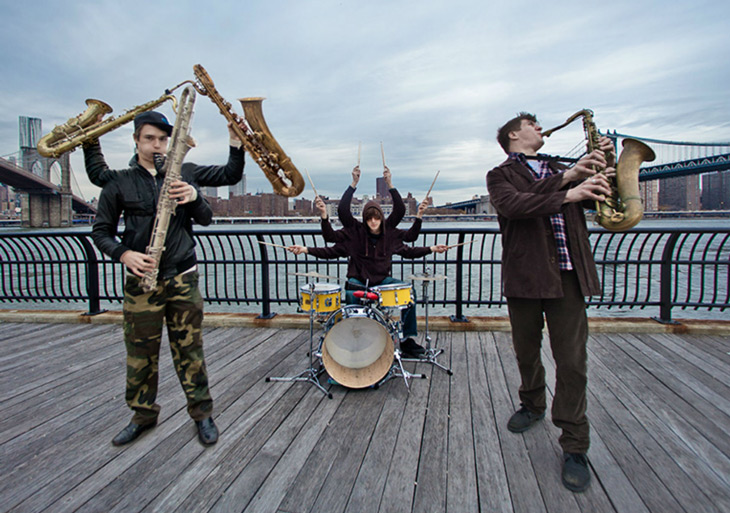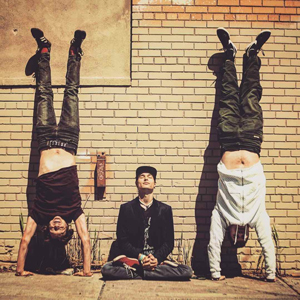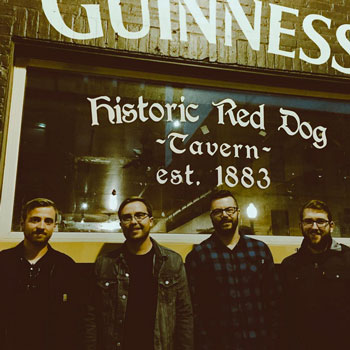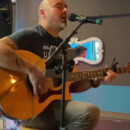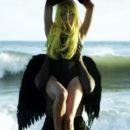What happens when you gather three musically ambitious young men who have professional training, an equal love for avant-garde jazz, cutting-edge dance music, and a limitless desire for experimentation? The answer is Moon Hooch, a New York-based trio, who, three albums into their short career, have gone from busking on subways to touring sell-out shows across the country.
Moon Hooch are saxophone players Mike Wilbur and Wenzl McGowen plus drummer James Muschler, all of whom met at the New York School of Jazz and Contemporary Music. They practice meditation, embrace ethical living and are serious about their art. “You can change your existence by just going out and doing it, by taking simple actions every day,” states Wilbur on their website.
Rhythm is at the heart of the band’s music, but this is not your predictable 4/4 dance beat. Theirs is a shifting, pulsing beast that stretches and flows, dependent not only on the whirlwind invention of Muschler’s sticks, but on the two horns, which alternate and entwine, one anchoring whilst the other soars, to create an hypnotic triple-helix of propulsion. There is ample breadth and depth to their tracks, the differing tones and modes are ambitious in scope, but always rooted in one guiding principle: this is music to move your body to.
Moon Hooch’s 2016 album, Red Sky, released on Hornblow Recordings, provides ample evidence. The title track kicks off with menacing staccato bursts of pin-point accuracy before morphing organically into a sugar-coated sax line and irresistible groove. “Sunken Ship” opens with minimalist electro burbling, which gives way to mellow vocals over a laidback looping bass. “Booty House” is pure sunshine funk; “Alien Invasion” is abrasive disco, while “Broken Tooth” is a late-night trip to sleaze-town. Always there is more going on than you think.
There is ample breadth and depth to their tracks, the differing tones and modes are ambitious in scope, but always rooted in one guiding principle: this is music to move your body to.
The group's togetherness is key. Listen to Red Sky and this becomes apparent: there is no back seat here, no hiding place. The individual is as important as the whole, and each drives the others to ascend heights of focus and energy. Where does this sound come from? “Definitely both Coltrane and Ornette [Coleman],” Muschler explains. How do they balance their avant-garde leanings with the more commercial aspects of their sound? “I think that we are constantly trying to challenge what that balance is,” he says, “and it seems that balance is malleable depending on the sound and our reaction to it in time.”
The band promises more music, more tours and a new album for 2017. From now until the end of the year you can catch them along the West Coast. The experimental side of Moon Hooch's nature ensures that their live performances are as much about evolving the sound as underlining their achievements. How far they can push the envelope, and in what direction, remain to be seen.

